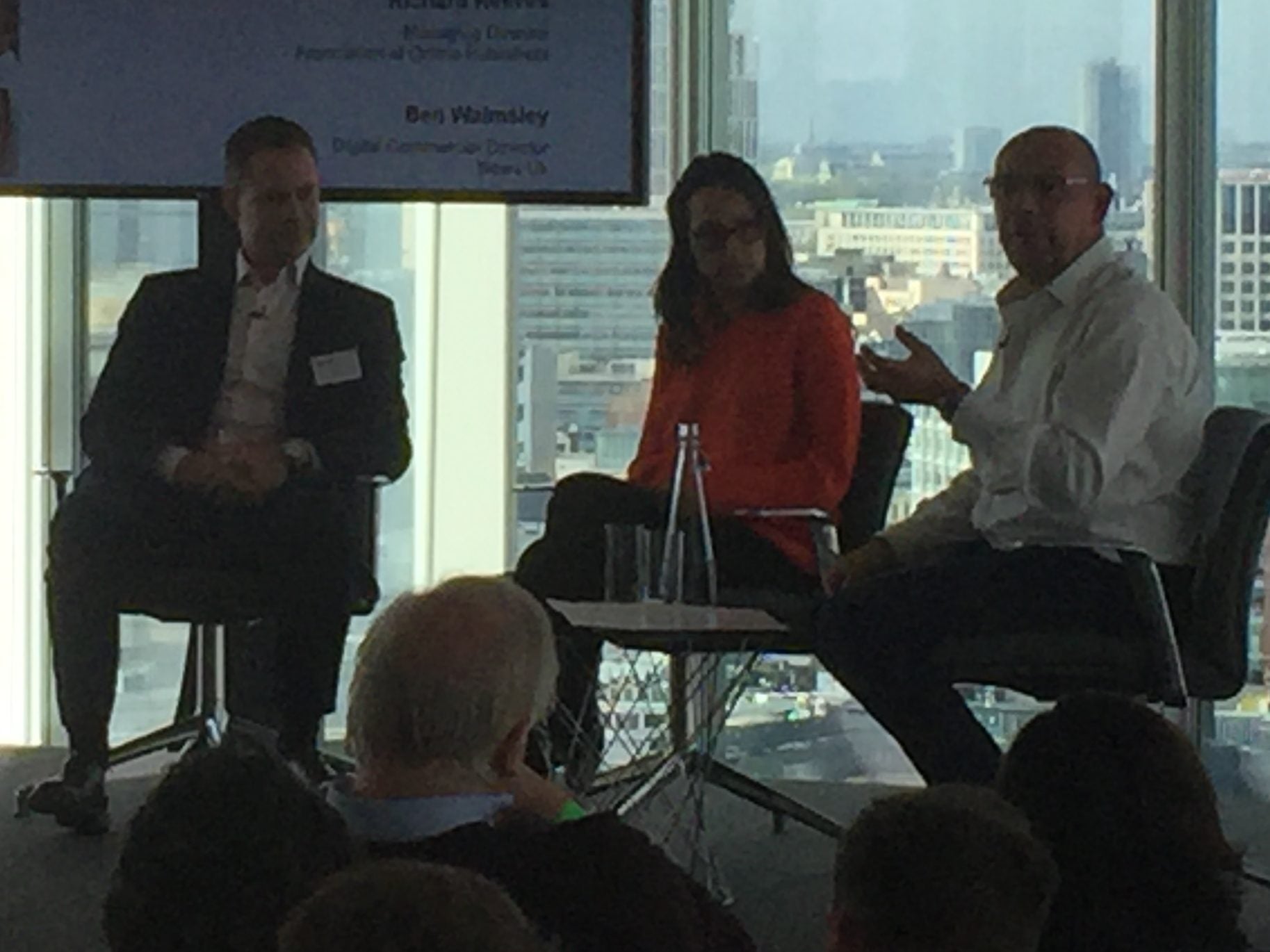
Publishers are losing out on advertising revenue to Facebook and Google because they cannot compete on the three key elements: scale, identity and data, according to News UK’s digital commercial director.
Ben Walmsley told Press Gazette’s Digital Journalism Summit today that publishers must diversify and find new revenue streams.
Asked by Press Gazette editor-in-chief Dominic Ponsford whether advertising on its own can be sufficient, Walmsley said: “Under the current circumstances, the current framework, the answer is no, sadly.
“There’s enough money in the market, but we need to direct some of that towards quality journalism.”
The project is a jointly-owned advertising platform giving advertisers access to participating publishers – and therefore more than 42.5m British consumers – through one specialised sales team.
Walmsley (pictured, left) said if the Ozone Project is successful, some of the revenues that come in can be turned into quality journalism.
He added that it would address scale and create a better technical framework to “level the playing field” with the Duopoly of Google and Facebook.
The Telegraph’s managing director of commercial growth Dora Michail revealed that the project is set to go live in the next couple of weeks with its first advertisers after “almost entirely positive” feedback.
She also said the member publishers are in conversations with other newsbrands, adding: “We would be delighted if any other publishers of quality wanted to come and build their own alliances in the same fashion, including about the magazine brands.
“We believe we have got technology that would enhance the work the magazine brands are doing and it could go far beyond that.”
Michail echoed criticism earlier in the day from News UK chief operating officer David Dinsmore, who said the BBC had become “Britain’s largest publisher” by chasing online traffic with populist content, competing directly with commercial news providers.
Michail (pictured, centre) said: “There is a very good free news service online in the BBC and that does present a challenge to newsbrands like us that are trying to convince readers… it isn’t necessary to pay for news.
“It isn’t cheap to run a newsroom and good investigative journalism which is important doesn’t come cheaply.”
“Subscriptions are the ultimate form of engagement,” Michail also said.
In August the Telegraph reached its 2018 target of reaching 3m registered users, and the title has now set targets of 10m registered users and 1m subscribers by 2023.
Michail said not every reader or registered user “is going to be someone who’s willing to pay for news, but that doesn’t mean they are not going to be a valuable customer to us”.
But she said: “Quality journalism in newspapers has never just been sustained by advertising… also by sales of the newspaper. We should assume that that becomes ever more relevant online as well.”
Newsletters have become key for the title engaging with its readers, Michail said, and are about “creating a dialogue that makes them feel like they are getting real value and a sense of community”.
Telegraph editor Chris Evans launched his “letter from the editor” email newsletter in the past month and Michail said feedback had so far been “really brilliant”.
The Times has seen huge subscription growth, News UK digital commercial director Ben Walmsley said, reaching more than 500,000 digital subscribers across the Times and Sunday Times.
“Audiences are generally are happy to pay for quality news,” he said.
Press Gazette’s Digital Journalism Summit is held in association with News UK.
Email pged@pressgazette.co.uk to point out mistakes, provide story tips or send in a letter for publication on our "Letters Page" blog

